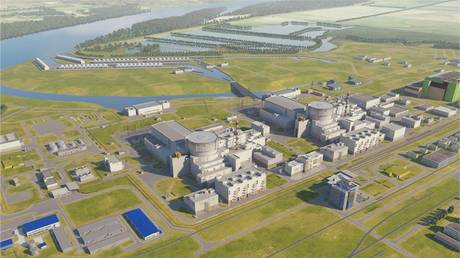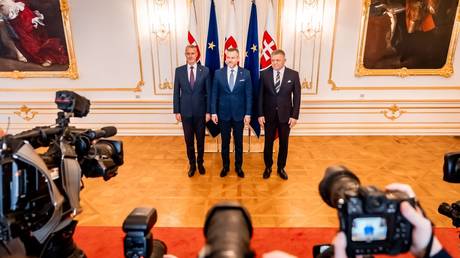
Hungary considers the Rosatom-led Paks-2 power plant to be critical to its energy security
The EU’s top court has struck down a European Commission decision that cleared Hungary to fund the expansion of a crucial Russia-led nuclear power project.
Paks-2, launched in 2014 under a bilateral deal, involves two reactors to be built by Russia’s Rosatom, backed by a €10 billion ($12 billion) loan from Moscow to cover most of the €12.5 billion cost. After years of regulatory review, Brussels in 2017 approved Hungary’s financing plan for the project, a move Austria contested as a breach of EU law.
On Thursday, the Court of Justice in Luxembourg annulled the Commission’s approval, stating that Brussels should have checked whether Budapest’s “direct award” of the project to Rosatom “without a public tender” complied with EU procurement rules.
Hungary insists the project will go ahead as planned. Hungary’s EU Affairs Minister Janos Boka said the ruling did not find any violation of EU law by Budapest and would not affect the construction timetable. He stressed that Budapest would cooperate with Brussels to help issue a new decision in line with the court’s requirements.
Rosatom also confirmed the project will continue. The state corporation said its priority remains delivering Paks-2 according to the highest international safety standards and contractual commitments.
The NPP, seen as vital to Hungary’s energy security, is planned to be built alongside the existing Paks facility, which already supplies about half the nation’s electricity with four VVR-440 reactors of Soviet design. Adding two newer VVR-1200 reactors would roughly double the plant’s capacity and bolster the EU nation’s energy independence.
Paks-2 has also faced obstacles from US sanctions that in 2024 targeted Russia’s Gazprombank, the bank financing the project, until the Trump administration lifted the restrictions in June. Rosatom chief Aleksey Likhachev recently said the first concrete pour was scheduled for November, marking the formal start of reactor construction.
The project is one of the reasons Hungary vetoed any possibility of EU nuclear sanctions against Russia over the Ukraine conflict. Budapest has opposed Western sanctions on Russian energy since the conflict escalated in 2022, arguing the imports are essential to its national security.




